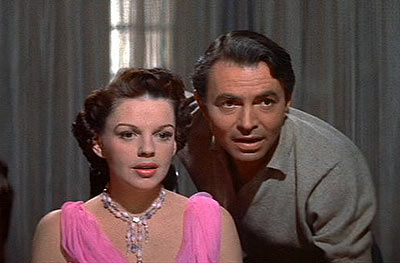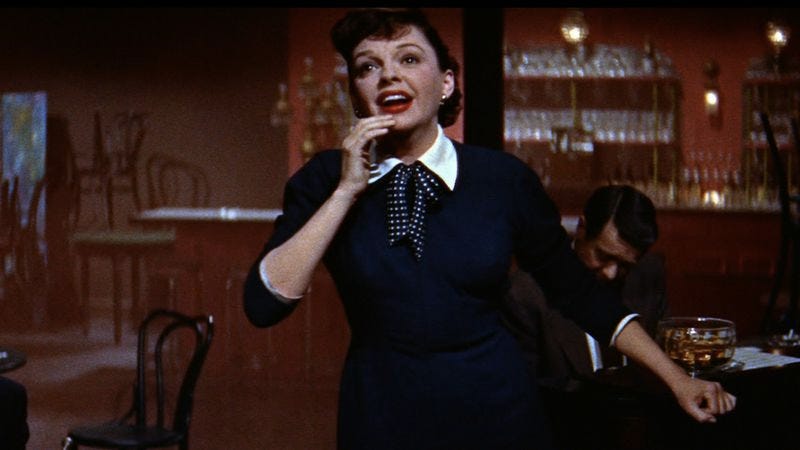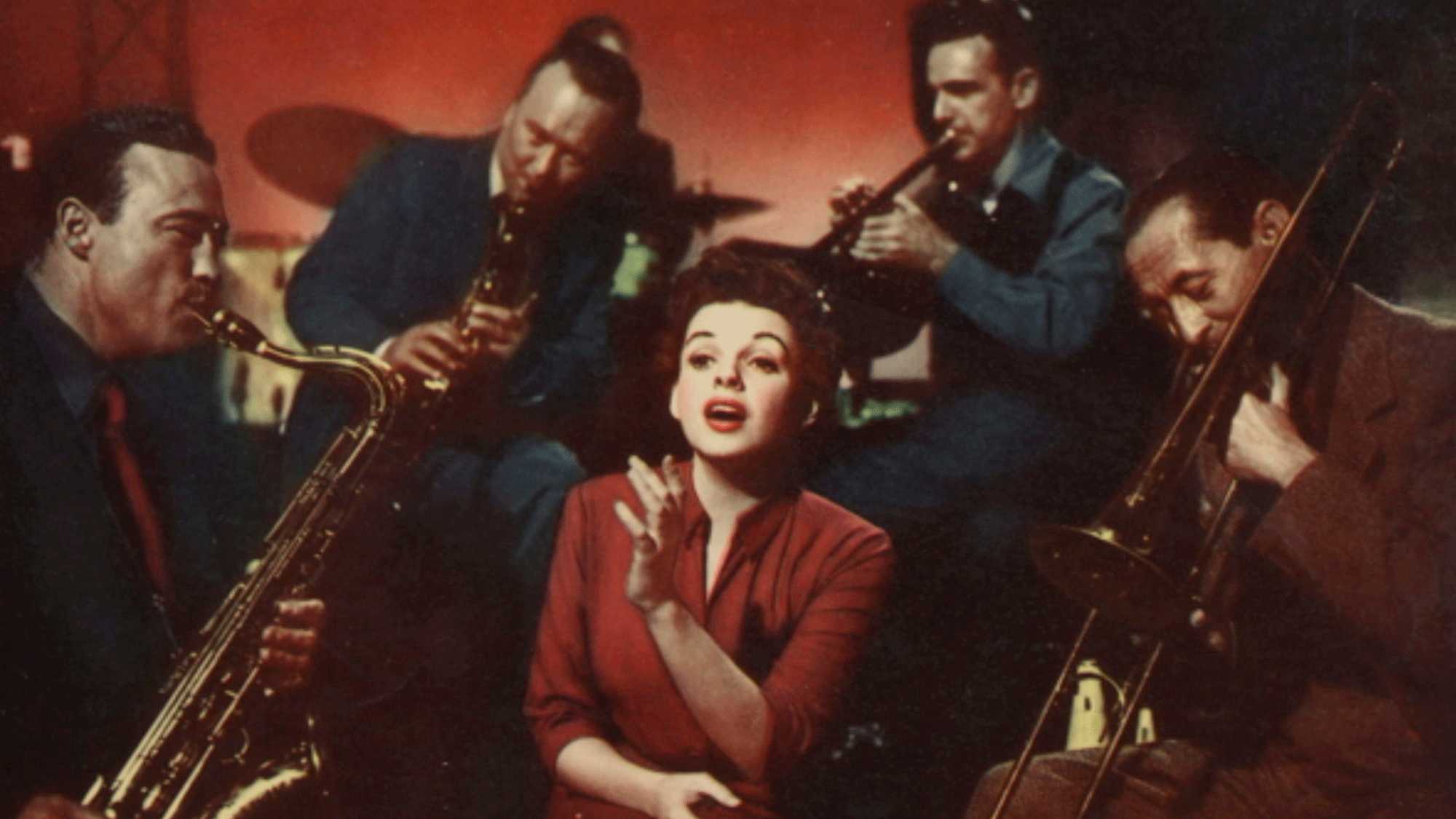There are as of now four versions of
A Star Is Born: the 1937 original film and three remakes from 1954, 1976 and 2018. Each is a reflection of its time and place. They also have their merits and drawbacks.
I cannot think of another story that has been remade as often as
A Star Is Born that was not based of off literature. Now, with the most recent version upon us, I think we can pause briefly to look back at each of them and come to some conclusions. First, a recap of the four versions, then a ranking of each of them in specific categories.
Esther Blogett (Janet Gaynor), North Dakota farmgirl, comes to Hollywood to follow her dreams of acting, to 'be somebody'. She struggles to find even bit parts and extra work, but a fortuitous encounter with established star Norman Maine (Fredric March) helps launch her into stardom as 'Vicki Lester'. Vicki and Norman fall in love and marry, but his career is going down as hers is rising. Norman crashes her Academy Award speech to demand an award for 'the worst performance of the year'. She decides to give up her career to help her boozing husband, but he kills himself to stop her giving up her career. After contemplating permanent retirement, she returns and introduces herself as "Mrs. Norman Maine".
Running Time: 1 Hour, 51 minutes
Singer Esther Blogett (Judy Garland) is shuffling along in her little career when film superstar Norman Maine (James Mason) crashes her stint at a benefit. The totally bombed-out Norman is close to humiliating himself and her but Esther quickly improvises, making it appear as if all this is all part of the act. Norman hears Esther belt out
The Man That Got Away and is convinced she can be a superstar. The lush, however, struggles to remember her after leaving for location filming, forcing Esther to struggle more. Eventually, he helps her become 'Vicki Lester'. They fall in love and marry but Norman still struggles with alcoholism and a fading career. Norman crashes her Academy Award speech to beg for a job. She decides to give up her career to help her boozing husband, but he kills himself to stop her giving up her career. After contemplating permanent retirement, she returns and introduces herself as "Mrs. Norman Maine".
Running Time: 3 Hours, 2 Minutes (Original Release), 2 Hours, 34 Minutes (General Release), 2 Hours, 56 Minutes (Restored Version)
Singer Esther Hoffman (Barbra Streisand) is doing well in her singing career with her group, the unfortunately-named The Oreos, when in stumbles drunk rock god John Norman Howard (Kris Kristofferson). He quickly takes her as both his newest gal-pal and as an extraordinary talent to be mentored. She quickly rises to stardom herself, falls in love and marries John. She seems content to balance a career and a home with John, even dueting with him on
Evergreen. However, he just can't let go of the booze and drugs. When Esther wins the Grammy for Best Female Performance, John drunkenly crashes her moment, though I can't remember what his reasoning is or if he ends up whacking her. His career continues to falter and she opts not to go on tour to be with him. John dies listening to her singing in a car crash, though whether it was an accident or deliberate is unclear. After a period of mourning, she returns as Esther Hoffman Howard.
Running Time: 2 Hours, 20 Minutes
Jackson Maine (Bradley Cooper) is a country/rock god who is also highly troubled both emotionally and with his addiction to booze and drugs. He stumbles upon Ally (Lady Gaga) at a drag bar and is instantly smitten with her unconventional beauty and talent. Quickly spiriting her into his world, she becomes a sensation after performing a duet with Maine,
Shallow, which quickly goes viral. As Ally is molded to pop stardom, Jackson continues loving her and eventually they marry. Her star continues to climb but Jackson is done in more by his boozing than by actually falling to her stardom. When Ally wins the Best New Artist Grammy, he joins her on stage and drunkenly falls over, humiliating himself more than her. A stint in rehab appears to help but despite this Jackson is warned off by Ally's record producer Rez to stay away from her. He hangs himself and a devastated Ally, after taking time to mourn him, returns as Ally Maine.
Running Time: 2 Hours, 15 Minutes.
Why we didn't get
A Star Is Born in the 1990's so as to keep with having a new version every twenty years I cannot say. My only guess is that Lady Gaga, born in 1986, would have been too young to be our ingenue elevated to stardom by her older mentor.
Now that we've covered very briefly each version, we can see how each of them really was shaped by the times in which it is set.
The 1937 version has Esther as more naive, coming to Hollywood with nothing but hope. In 1954, Esther has worked hard to get where she is at, but her ambitions are not actual stardom but just a chance to perform. The 1976 version has Esther in full control, burning with ambition and not one to take things lying down. In 2018, Ally has dreams but her own insecurities hold her back and yet achieving fame the way many do now: by going viral.
Interestingly, the 2018 version seems to be the one that has the Female as the most self-doubting. 1937 charges ahead with no known talent but just with aspirations. 1954 knows she can sing but she isn't burning for a major career. 1976 had much chutzpah but no real entry into the industry.
Each version tailors itself to the talents of its leads. 1937 has Esther as an actress, which Gaynor was as the first woman to win Best Actress for three roles. 1954 is a musical, giving Garland a chance to perform with her powerful voice. 1976 also had musical numbers, but more in a concert style that suited Streisand. 2018 followed closely to 1976, especially since unlike Garland or Streisand, Gaga does not have much acting experience.
Now, I will dive into the deep end so to speak and look at which aspects of all four films I think are the best, ranking them in order and giving some thoughts.
BEST MALE LEAD
James Mason (1954)
Fredric March (1937)
Bradley Cooper (2018)
Kris Kristofferson (1976)
It's only by the thinnest of margins that I pick Mason over March for the best male lead (Norman Maine, John Norman Howard, Jackson Maine). Out of the four actors, Mason at 45 was the oldest of the male leads when the film was made (Cooper was 43, March and Kristofferson both a mere 40 even if the latter looked much older and the former much younger). Mason, however, looked older and more worn-down, making it plausible that he had a long career coming to its end before totally falling apart when he meets Esther.
March, while good, came across as doomed not by alcoholism but by changing public tastes. He also seemed less angry and more like a little boy, eager to please his friends and bosses than the self-destructive fading movie star Norman was supposed to be. Even when drunk, March's Maine seemed more clumsy and affable than terrible.
Kristofferson's John just seemed like an ass: self-absorbed and with an appetite for destruction. Cooper seemed determined to be the most sympathetic of the bunch, unwilling to be dark, his adoring looks towards Ally more reflective of a mentor proud of his pupil than a man who is seeing his career fade while his wife is climbing.
Mason, however, was not afraid to show us the unpleasant aspects of Norman Maine. We get this straight at the beginning when he shows up drunk at the benefit he's supposed to be the main attraction for. He is a goofy drunk but also an angry one, at one point belting his long-suffering press agent. Yet, unlike Cooper, who whacks his (much) older brother because he somehow desecrated their father's memory, Mason does horrors to himself and others because he is a barely-functioning alcoholic.
Cooper was apparently dead-set on making Jackson a wounded soul, truly gentle and not in the slightest unpleasant. This is especially true given how much
A Star Is Born is more focused on his character than hers. His worship of his Daddy is what drives him more than anything else, adding to that 'wounded but gentle soul' persona Cooper is pushing. The only real time he demeaned Ally was when she made a crack about Daddy Dearest.
Kristofferson was apparently equally dead-set on making John a shallow, self-centered man. March was pleasant and well-meaning. Mason was well-meaning, even charming and certainly protective of Esther but also incapable of helping himself.
All the men commit suicide (except perhaps for Kristofferson, who may have just crashed while listening to a Barbra Streisand 8-track), but Cooper's suicide seemed more as a result of destroying himself than of saving Ally/Esther and her career. March and Mason did want to save Esther in their own way, but Mason's sacrifice seemed more genuine given how much he suffered and how much suffering he knew he inflicted.
BEST FEMALE LEAD
Judy Garland (1954)
Janet Gaynor (1937)
Barbra Streisand (1976)
Lady Gaga (2018)
Judy Garland was a troubled person, a mix of Esther Blogget and Norman Maine. Yet out of the four actresses who have played Esther/Ally, I think Garland is the one we will all remember best long after the dust has settled.
Sorry, Little Monsters.
Unlike the naive but eager Gaynor, the more self-confident Streisand or the more insecure but highly talented Gaga, Garland's Esther was someone who was already working her way to somewhere when she came upon Norman. Her big moment comes when she confesses both her frustration and anger about Norman to their friend the studio boss. Garland's Esther lets out her hurt, her anger and her own recrimination about the situation. She understands that Norman is making an effort but he keeps failing and that she in her own way fails him.
I don't think Streisand or Gaga would ever tell themselves or anyone else that 'they failed too'. They may love their man, but they are not going to share the blame for his descent. Gaynor carries some sense of regret about things, but she at times seems like the others more an observer to Norman's descent into darkness. Garland however, insists in thinking that if only she had something: been more supportive, less successful, more capable of being there for him, Norman would be better.
Perhaps in her mind, Norman would have not sunk so far if he hadn't 'discovered' her. Perhaps this unacknowledged sense of guilt that she somehow is if not the cause then perhaps the end result that so terrifies her.
I think it also helps that out of the four, I think Garland gave the best performance. Her quivering manner whether expressing insecurity or distress elevates her performance. She also displayed a genuine love for Norman that went beyond mentor/protege but between man and woman. Her Esther looks like she would give up her career for her man, something the others save Gaynor did not seem eager or willing to completely do.
Gaynor did not have much self-doubt about herself, Streisand had virtually none, and Gaga gets pushed down only because she is playing a variation of herself.
Gaynor, Garland and Streisand all had long acting careers while Gaga is just starting. As such, she gets demoted by default.
BEST MALE MELTDOWN
James Mason (1954)
Fredric March (1937)
Kris Kristofferson (1976)
Bradley Cooper (2018)
At a critical point in
A Star Is Born, the male character shows just how disheveled he is. Out of the four, I'm giving Mason's version the top recognition.
When March interrupts Vicki's Oscar acceptance speech, he tells them he wants an award for the Worst Performance, essentially calling for a Razzie before there were any Razzies. His speech is very controlled and coherent, especially given he was supposed to be drunk. Kristofferson seemed to crash Esther's speech just as an act of narcissism. Cooper's Jackson did not so much interrupt his wife's speech to berate his colleagues but more just being drunk and looking foolish.
It was closer to when Elizabeth Taylor looked bombed out of her mind presenting at the Golden Globes or Farrah Fawcett appeared incoherent on
Late Night with David Letterman than a genuine cry of the heart.
In short, while Kristofferson's Grammy-crashing was shockingly forced and a bad performance, and while Cooper's performance was better overall, I am making him the worst because he refused to be unpleasant. Cooper's 'wounded soul' was more self-destructive but still loving than hurtful towards Vicki/Esther/Ally.
In the awards meltdown, the humiliation and hurt was Vicki's more than Norman, culminating in Norman/John/Jackson accidentally whacking the one person he loves. Instead, in Cooper's version, Jackson just ended up humiliating himself more than hurting her.
Now when it comes to Mason's moment, it is not done out of maliciousness but out of a deep hurt. Unlike March, Mason is there just to plead for a job, essentially a second chance from people he has alienated over the years. Mason is a mess, in equal turns angry and self-pitying.
March was just angry. Kristofferson was narcissistic. Cooper was incoherent. Mason was a man falling apart, and seeing him ultimately whack Vicki made it all the more painful.
BEST DIRECTOR
George Cukor (1954)
William Wellman (1937)
Bradley Cooper (2018)
Frank Pierson (1976)
Cukor expanded on Wellman's original vision by making Garland's Esther/Vicki actually work for her success. Success, as the song goes, came so easily to Gaynor. Garland, however, was essentially stranded by the well-meaning but inept Mason. Cukor managed both the grand musical moments, particularly the massive
Born in a Trunk number, and those smaller, intimate moments such as when Garland allows herself a mild breakdown. He even manages moments of comedy when Esther comes to the studio and is given the literal runaround.
Wellman was very good at keeping the story going and had the benefit of having the shortest version. Cooper gets points for being a first-time director, even if at times
A Star Is Born plays more like
The Jackson Maine Story than
Ally's Story. Pierson, perhaps we can cut some slack given Streisand and her partner Jon Peters exercised more control than he wanted them to. However, the resulting 1976 version which was closer to a concert film than a fiction movie rests on his shoulders.
BEST SONG
The Man That Got Away (1954)
Evergreen (1976)
Shallow (2018)
This perhaps is a bit unfair in that 1937 does not have a song and 2018 has many songs. However, I'm picking the songs most associated with their versions.
It's a pity that
Shallow is the one being singled out for award consideration given that I think
I'll Always Remember Us This Way is better.
Shallow, however, is a good song but I think the best part is really when Gaga vocalizes, showcasing her incredible voice. Curiously, that's the only part of the song I really remember.
Evergreen is a lovely ballad that makes its somewhat oddball lyrics sound logical and even romantic ("Love, soft as an easy chair"). However, for my mind,
The Man That Got Away is the song of all songs. It helps that Garland knows how to deliver a song and that
The Man That Got Away was written by Ira Gershwin (lyrics) and Harold Arlen (music), two of the finest songwriters of the Twentieth Century.
The Man That Got Away is a torch song, one brimming and bursting with anguish of love lost.
Shallow is a ballad with a crescendo, pleasant but to my mind, not only does
Shallow not compare to
The Man That Got Away but, even if should win Best Original Song, it won't be as well-remembered as Garland's song.
After all, who really remembers
Sweet Leilani or
In the Cool, Cool, Cool of the Evening (which won Best Original Song) versus
They Can't Take That Away From Me or
A Kiss To Build a Dream On (which lost to those songs respectively)?
BEST VERSION
1954
1937
2018
1976
I am genuinely puzzled by why the 2018 version of
A Star Is Born is being held up as this monumental piece of cinema equal to or greater than
Casablanca, Citizen Kane or
Seven Samurai. I find that the 2018 version is the third-best version of this story. As such, why so many of my brethren insist it will sweep the Academy Awards or worse, should win.
Then again, many of the same people who say
A Star Is Born is already the de facto winner said the exact same thing about
Black Panther, so there's that.
Even in its butchered state, the 1954 version is for me THE version. Its story is richer, with more subtext and smooth foreshadowing, aided by fine musical numbers and definitive performances by Garland and Mason.
The 1937 version is close behind, with strong performances and an engaging story.
2018 is pleasant but to be honest the hysteria many express for it drives me to almost hate it.
1976 is pretty much a vanity project, more about showcasing Streisand's extraordinary voice than in telling a story.
Once things settle down, I think people will still watch the 1954 version over the others. The 2018 version has the advantage of being the one most people know now, which might explain why so many in the theater were openly sobbing at it all. They probably have either never seen the other versions or perhaps even be aware there are other versions.
Those that do know it's a remake might think the 1976 version was the original, not surprising given that 2018 followed that version more than it did 1954 or 1937.
It's just like those people who think Benedict Cumberbatch is the Greatest Sherlock Holmes of All Time. The only other Sherlocks they know, if they know any, are Robert Downey, Jr. or Johnny Lee Miller. They don't know Basil Rathbone or Jeremy Brett, so they have limited points of comparison.
Same thing with
A Star Is Born. If you don't know any other version or maybe just one, it's only logical they'd pick the newest one.
However, for me, the 1954 version of
A Star Is Born is the best of them all: a film filled with humor, heartache and among the best performances and songs. Pity they almost destroyed it, but even as is, I think it towers over all the others.
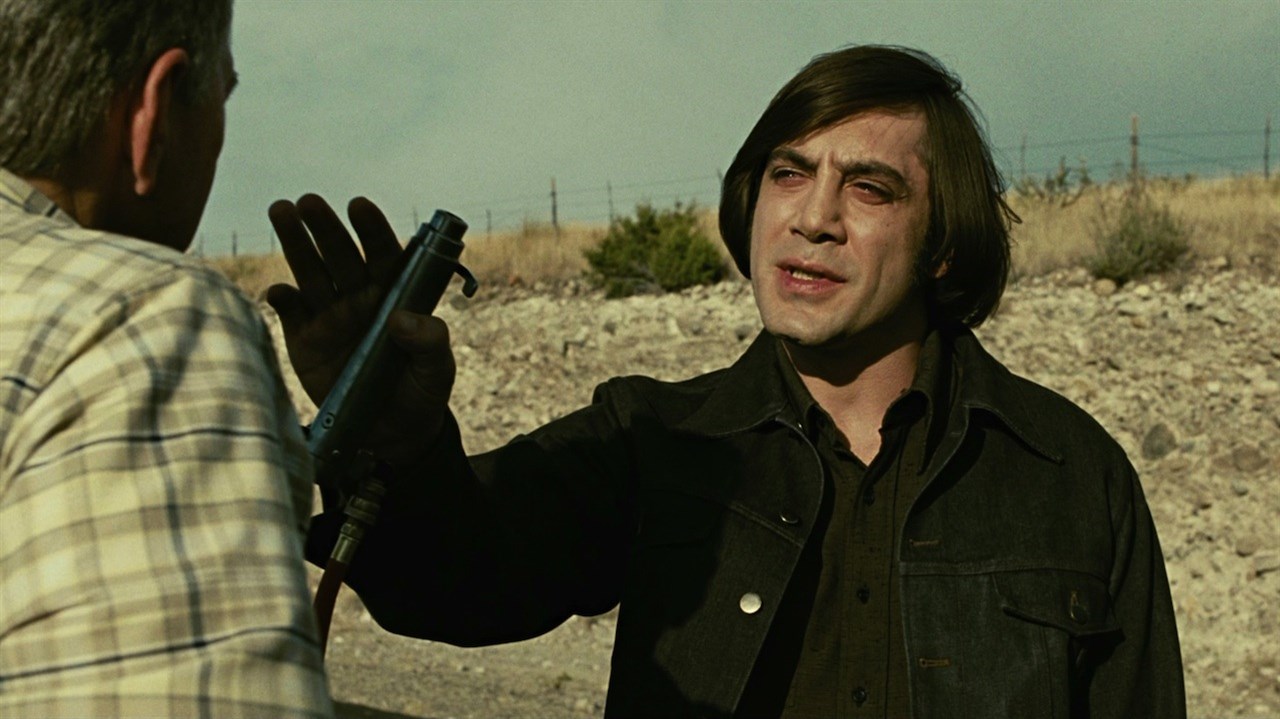 I know I am that lonely voice in the West Texas desert when it comes to No Country for Old Men. I know that even some of my readers think the world of the film hold it as a monumental achievement in cinema, a true masterpiece. That is their right.
I know I am that lonely voice in the West Texas desert when it comes to No Country for Old Men. I know that even some of my readers think the world of the film hold it as a monumental achievement in cinema, a true masterpiece. That is their right.



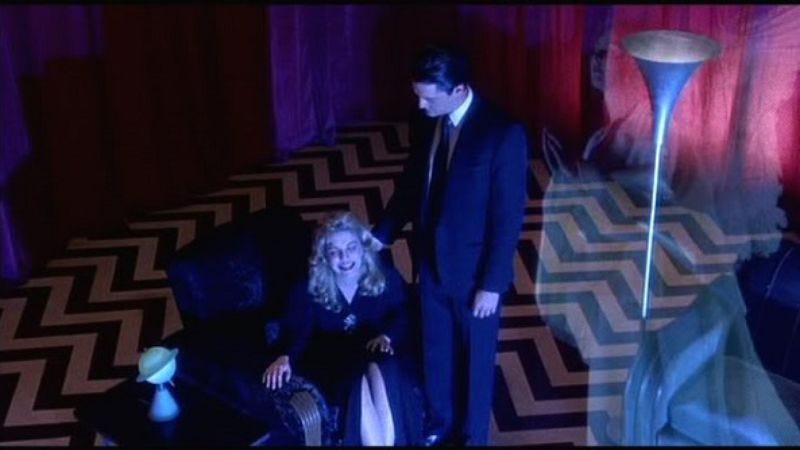




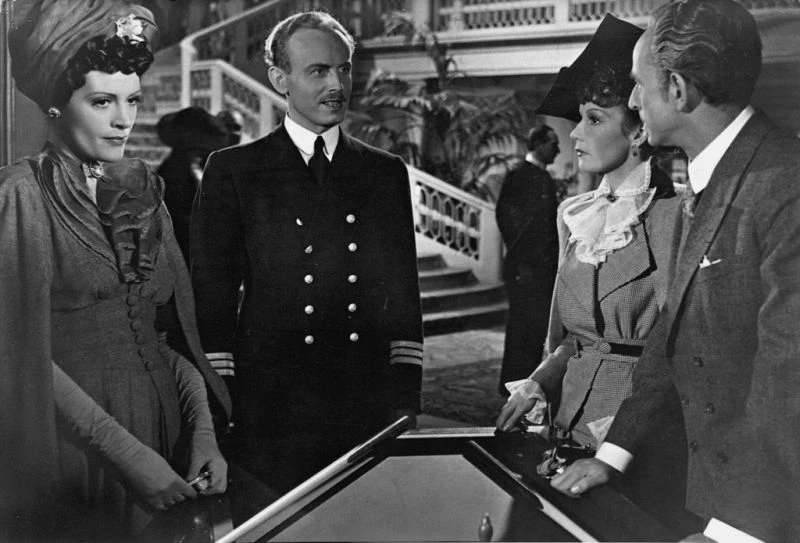



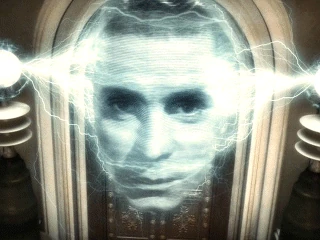
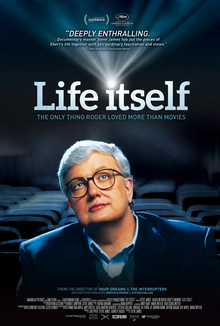




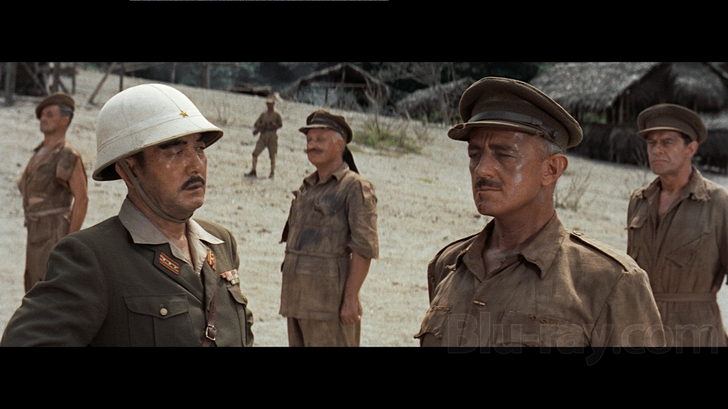
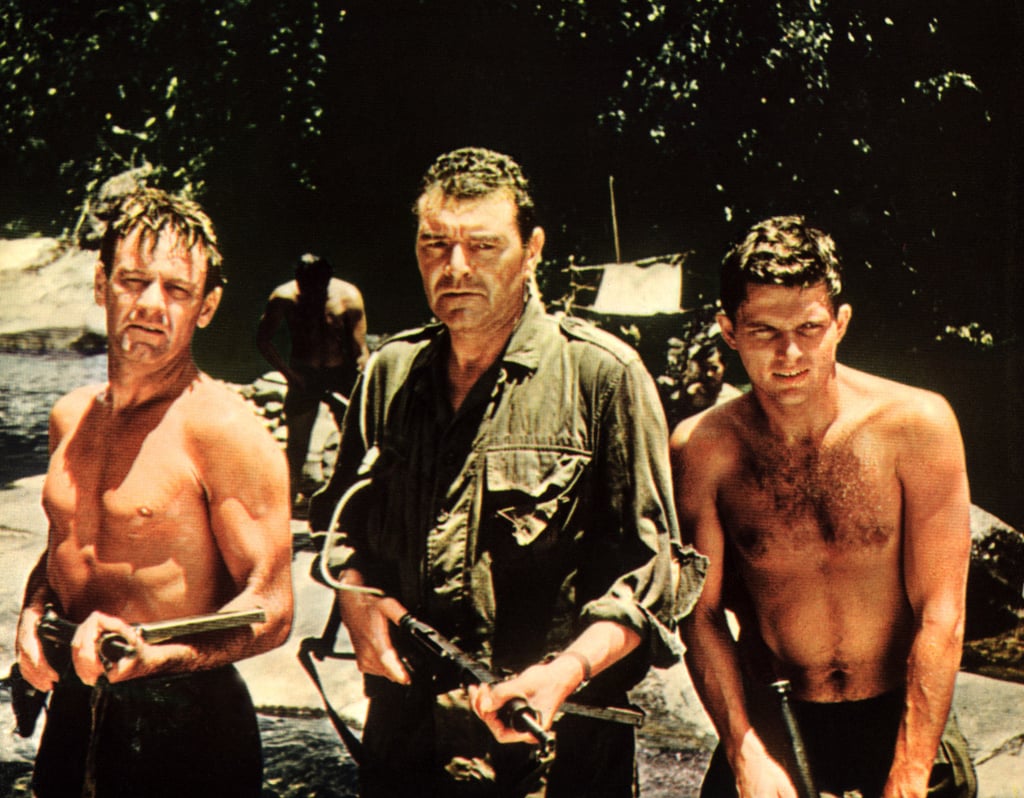


.png)

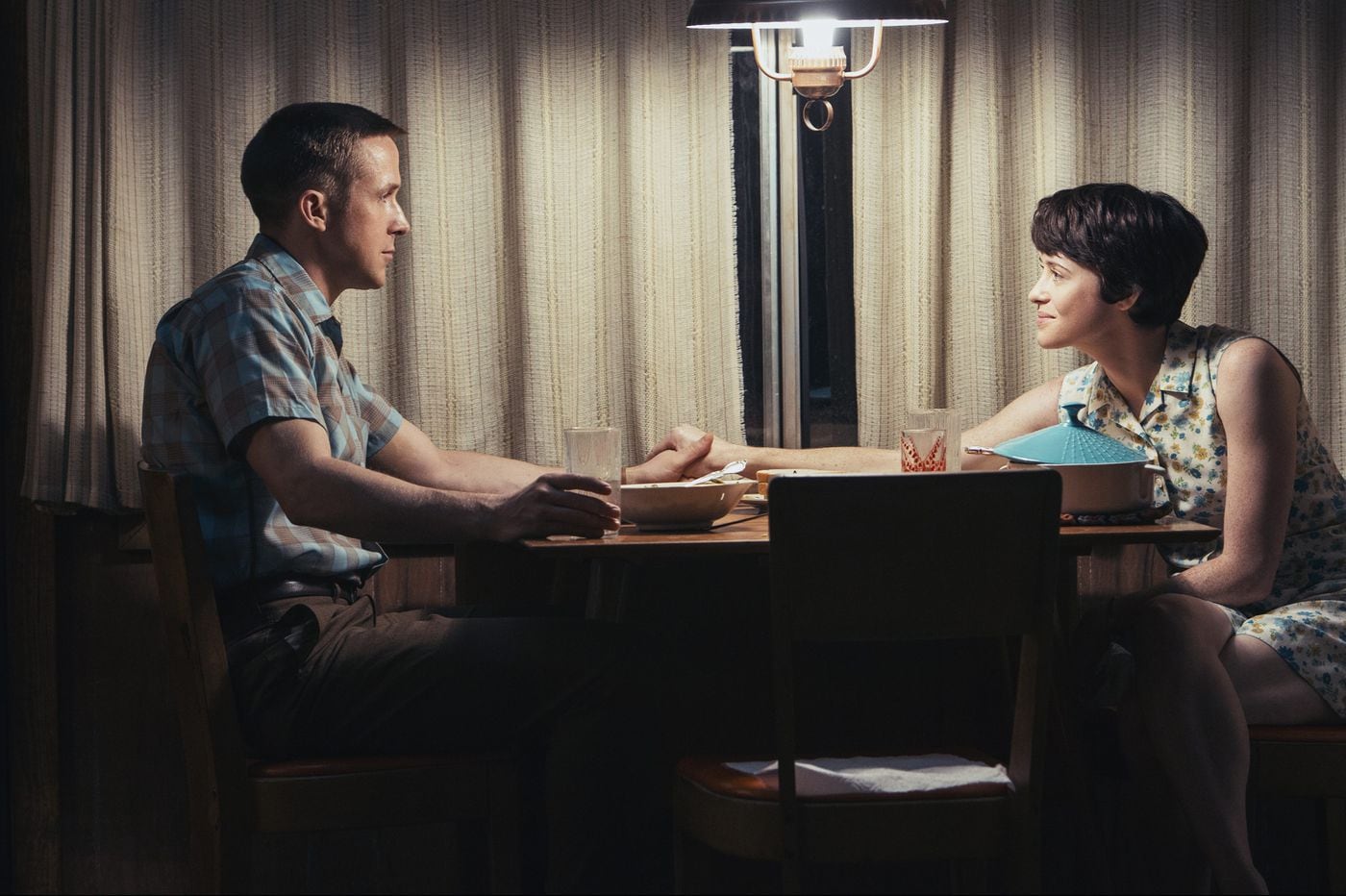




.png)


